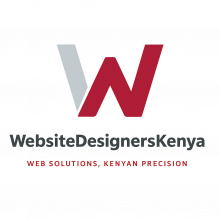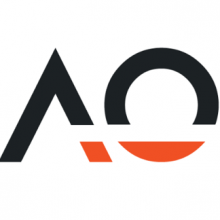
There are 5 Companies in Kenya
that provide No-Code Development Services!
Kenya’s ICT sector was worth an estimated $11.19 billion in 2025, with a CAGR 2025-2030 of 5.91%. The telecommunications segment accounts for the vast majority of this, at around $3.79 billion. Other important contributors are broadcasting, data center services, cloud, IT, and BPO.
Discover Top IT Companies in Kenya specialized in No-Code Development and other related services. Find the best IT service providers for your projects.
No-Code Development is a method used in software development that allows users to create automated business operations and create applications without any programming. It uses intuitive tools and visual interfaces to make the process of app creation faster, with features like pre-made templates. A variety of services leverages No-Code Development, including business process automation, website and app development, customer engagement, project management, education & training, and e-commerce solutions.
Handpicked companies • No obligation to hire • 100% risk-free
Explore Top No-Code Development Companies in Kenya
B&R Technologies delivers website solutions and digital marketing in Kenya. Grow your business with expert branding & online strategies today!
Nelium Systems is a full-service digital agency helping brands grow through web design, SEO, branding, and smart marketing automation.
Services:
Website Designers Kenya is a creative web design and digital solutions company based in Nairobi, Kenya. we specialize in building modern websites
Your friendly neighbourhood digital agency
Filter No-Code Development Companies in Kenya by Cities
Find the right tech company near you or from a specific city. Some of the best companies might be located in smaller cities.
Find more No-Code Development companies around the world
TechBehemoths is the world's most advanced and user-friendly platform to match IT Companies with real clients without hustle.
The Kenyan ICT Industry: Data & Insights
Kenya’s ICT sector was worth an estimated $11.19 billion in 2025, with a CAGR 2025-2030 of 5.91%. The telecommunications segment accounts for the vast majority of this, at around $3.79 billion. Other important contributors are broadcasting, data center services, cloud, IT, and BPO.
Kenya’s combination of relatively stable governance, strategic location, and young and innovative population has made it an attractive destination for multinational companies. Several notable firms, such as Oracle, IBM, Microsoft, Cisco, HP, and SAP, have offices in Nairobi, and some have based their entire African operations from these offices.
Why You Should Work With Kenyan IT Companies
Digital service providers in the cloud and BPO markets are primarily involved in the provision, rather than the development, of services, whereas Kenyan firms are more prevalent in the fintech and e-commerce markets. The physical technology required for the delivery of digital services is typically imported, and it is not clear that Kenya could produce these products more efficiently.
A key strength in the digital services market is the acceptance of mobile services. Any consumer solution entering the market would have to be mobile-compatible. Mobile healthcare services are expected to grow particularly rapidly as the sophistication of these offerings increases.
What to Pay Attention to When Working With Kenyan IT Companies And Web Agencies
On the consumer side, it is vital that any proposed digital service offering be mobile-compatible due to the prevalence of mobile usage in Kenya. Furthermore, smartphone penetration in the region is steadily increasing, thus increasing the sophistication of viable digital service offerings.
Given the acceptance of fintech by the Kenyan population, a possible route to entry in the consumer market is to acquire one of the many smaller fintech firms in the industry. This would resolve some of the primary barriers to entry, most specifically bureaucratic red tape and a lack of local knowledge.
On the corporate side, the most effective route to entry is likely through partnerships with smaller local resellers. This model is already popular in the Kenyan market. A key differentiating feature here will be how well the service adapts to the Kenyan market.
How Reliable Are Kenyan-based IT Companies?
Considered to be one of the biggest African IT hubs, Kenyan web agencies and IT companies compete only with Ethiopian ones in terms of reliability. As many foreign companies have already invested and thus developed the local IT infrastructure and industry overall, Kenyan IT companies find it easier than other neighboring countries to enter the global market and provide their services at accessible prices.
How Kenyan IT Industry Relate to the Neighboring Countries?
Kenya is actively trying to establish itself as a key ICT hub in the East African region. The country appears to be making good progress in this regard, helped by having a strong connectivity infrastructure and a young, innovative population. Despite this, the country currently faces considerable political uncertainty, and issues surrounding the transparency of tenders remain a major barrier to growth.
Although Kenya’s score for the metric measuring the economic impact of ICT is not high in absolute terms, it ranks 54th in the world. This supports the conjecture that businesses, government, and consumers will be receptive to new technologies, as ICT has already had a substantial impact on the Kenyan economy.
What is No-Code Development and what are its benefits for your projects?
No-Code Development is a method used in software development that allows users to create automated business operations and create applications without any programming. It uses intuitive tools and visual interfaces to make the process of app creation faster, with features like pre-made templates. A variety of services leverages No-Code Development, including business process automation, website and app development, customer engagement, project management, education & training, and e-commerce solutions. It is also often interconnected with several services like Artificial Intelligence and Cloud Network.
According to Statista, the global low-code platform market is expected to hit approximately $65 billion by 2027. These data underline the rising demand from businesses searching for easier ways of developing apps.
By implementing a No-Code Development approach, businesses can get several perks, including:
- Accessibility for non-developers
- Cost-effectiveness
- A boost of innovations
- Flexibility and scalability
- Speed of development
To select a platform of No-Code Development services for a project, you should look into several criteria. For example, consider what your goal is with no-code tools, the operational costs, and the number of users that can access the platform. In addition, some measures should be taken into consideration:
- Security measures: The company should ensure that only authorized users can access the project. Unless the case is when the no-code project is a public web page or app.
- Controlled access administration: If the project gathers any type of data, it must have features or tools that meet the firm's data security standards and follow the regulations of data storage.
- Ease of use: Choose a platform easy to navigate for business users without help from tech support.
- Partnership support: It can be useful if you want to have multiple people collaborate on this project.
- Troubleshooting tools: Some No-Code Development platforms have debugging tools that are competitive to those used by professionals, while others don’t even have one. Without these measures, your project can not work, and you won’t understand why.
- Integration with internal data sources: Verify if the no-code platform sustains the correct APIs and data access protocols with the data of your firm.
- Ability to add code: Even though these platforms do not need code to work, if you want to expand the project’s functionality with JavaScript, API calls, and SQL statements. Make sure that the platform allows you to make these changes.
- AI tools: Leveraging AI utilities can bring many benefits, for instance, analyzing data, showing information in the native language, and communication via chatbot.
A trustworthy tech platform is TecheBehemoths, which can help you in finding the best firm for your project, providing No-Code Development services. With a large range of 100+ companies in Europe, Asia, North and South America, TechBehemoths gives fair rankings and reviews. In addition to the elaborate profiles that help to choose the right No-Code Development company. The platform has an easy-to-manage interface and strong search feature, wth the option to choose different filters, like the location, team size, hourly rate, and other preferences.




